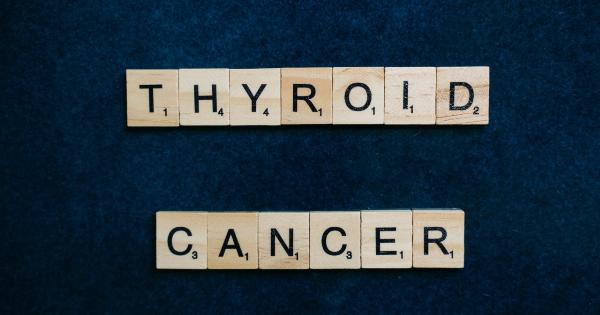Thyroid surgery, also known as thyroidectomy, is a surgical procedure that involves the partial or complete removal of the thyroid gland.
The thyroid gland, located in the neck, plays a vital role in regulating various bodily functions, including metabolism, heart rate, and body temperature. While most thyroid conditions can be managed with medication or other non-surgical treatments, there are certain situations where thyroid surgery may be necessary.
In this article, we will discuss when you should consider thyroid surgery and what you need to know about the procedure.
1. Large thyroid nodules or goiter
If you have a large thyroid nodule or a goiter that is causing significant discomfort, difficulty swallowing, or breathing problems, your doctor may recommend thyroid surgery.
Large thyroid nodules can be benign (non-cancerous) or cancerous, and surgical removal may be necessary to evaluate the nodule for malignancy or to relieve symptoms caused by its size.
2. Suspicion of thyroid cancer
If your doctor suspects thyroid cancer based on imaging tests, biopsy results, or other diagnostic findings, thyroid surgery may be recommended.
Surgery allows for the removal of cancerous tissue and further evaluation to determine the stage and type of thyroid cancer. Depending on the extent of the cancer, additional treatments such as radioactive iodine therapy or radiation may be required after surgery.
3. Hyperthyroidism that is unresponsive to other treatments
Hyperthyroidism is a condition characterized by an overactive thyroid gland, leading to symptoms such as weight loss, rapid heartbeat, anxiety, and tremors. Most cases of hyperthyroidism can be managed with medication or radioactive iodine therapy.
However, in some cases where other treatments have been ineffective or are contraindicated, thyroid surgery may be considered as an option to manage the condition.
4. Multiple or recurrent thyroid nodules
If you have multiple thyroid nodules or if you have a history of recurrent nodules that continue to grow or cause symptoms, your doctor may suggest surgery.
Surgery can help remove the nodules and provide a definitive diagnosis, especially if there are concerns about the possibility of thyroid cancer or if the nodules are causing compression symptoms.
5. Graves’ disease
Graves’ disease is an autoimmune disorder that causes the thyroid gland to overproduce thyroid hormones. This condition can lead to hyperthyroidism and a variety of symptoms, including weight loss, fatigue, irritability, and bulging eyes.
While medication and radioactive iodine therapy are often effective in managing Graves’ disease, surgery may be recommended in certain situations, such as when medications are intolerable or when the thyroid gland is severely enlarged.
6. Recurrent thyroid infections
If you have recurrent thyroid infections, which can manifest as painful abscesses or thyroiditis, surgery may be considered.
Removing the infected or inflamed tissue can help prevent future episodes and alleviate chronic discomfort or pain associated with these infections.
7. Suspicion of thyroid nodules being at higher risk for cancer
In some cases, certain characteristics of thyroid nodules may raise concerns about the possibility of malignancy.
These characteristics include large size, rapid growth, suspicious ultrasound features, or patient history indicating an increased risk of thyroid cancer. If there is a suspicion that the nodules may be at higher risk for cancer, your doctor may recommend surgery to remove the nodules and assess their nature.
8. Thyroid nodules causing cosmetic concerns
In some instances, thyroid nodules can cause visible swelling in the neck region, leading to cosmetic concerns.
If the nodules are visible and significantly affect your self-image or quality of life, thyroid surgery may be considered to remove the nodules and improve the appearance of your neck.
9. Intolerance to thyroid medications or treatment side effects
While most thyroid conditions can be managed with medications, some individuals may experience intolerable side effects or be unresponsive to medication therapy.
In such cases, when medications are not a viable long-term option, thyroid surgery may be suggested as an alternative solution.
10. Desire for definitive treatment
Some people may prefer a definitive treatment for their thyroid condition rather than continuous monitoring or long-term medication use.
Thyroid surgery offers a permanent solution for certain thyroid conditions, providing a complete resolution or significant improvement of symptoms without the need for ongoing medical management.
Conclusion
Thyroid surgery is a complex decision that should be carefully evaluated and discussed with your healthcare provider.
The decision to undergo thyroid surgery is based on various factors, including the specific thyroid condition, its severity, the presence of symptoms, and the risk of complications. It is crucial to have a thorough understanding of the potential benefits, risks, and alternatives to surgery before making a final decision.
Consulting with a thyroid specialist or surgeon can help you determine whether thyroid surgery is the right choice for you.





























